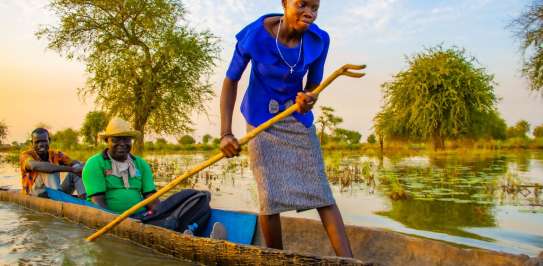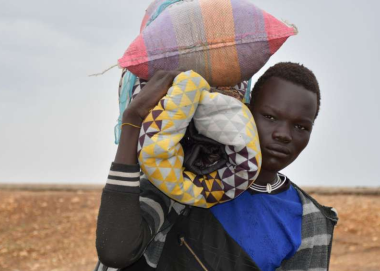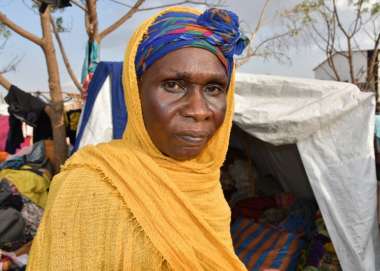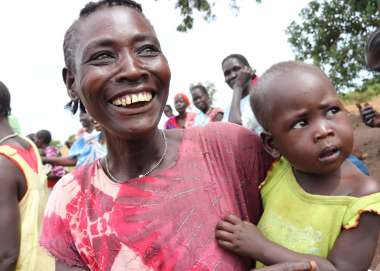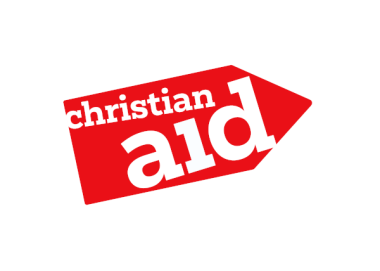South Sudan became an independent country in 2011 amid much hope and optimism, following a referendum in which its people voted overwhelmingly to separate from Sudan.
However, following a power crisis which erupted in 2013, South Sudan has spiralled into a conflict, which has spread across most parts of the country and leading to deaths of thousands of people and widespread displacement.
Today, over 7 million people – half of the population – are facing extreme hunger and high rates of acute malnutrition.
Our South Sudan country programme recognises that ultimately the only solution to the humanitarian crisis is for there to be peace, and therefore integrates humanitarian response, our ‘From Violence to Peace’ work to tackle conflict and build peace, and facilitates access to essential services, especially health care.
Our aims
- To support conflict-affected communities to co-exist and develop in a peaceful, just and secure environment
- To reduce humanitarian vulnerability of conflict affected communities and strengthen their resilience towards recovery from conflict
- To improve access to quality health care for poor and marginalised communities
- To expand community opportunities to gain sustainable livelihoods that address short term well-being needs and contribute to poverty eradication
In South Sudan we work on...
Humanitarian
Our humanitarian work helps disaster-affected people in hard-to-reach and the worst affected areas. We ensure their essential and immediate needs are met and support them to resume integrated, resilient livelihoods more quickly.
We work to ensure all our partners, including churches, can anticipate, prepare, and protect the lives and livelihoods of the most vulnerable, and respond to threats, shocks and hazards ensuring a strong commitment to conflict sensitivity.
From Violence to Peace
Our From Violence to Peace work aims to empower South Sudanese communities to address the root causes of conflict and to have a say in an inclusive peace for South Sudan.
We work to equip communities with the knowledge and tools they need so they can successfully address key drivers of conflict, engage with credible spaces for dialogue and inform political peace processes.
We also support church leaders to represent grassroots voices to advocate for peace and lay the groundwork for long-term reconciliation.
Our work also involves engaging with staff and partners, so they are better equipped to understand and respond to psychosocial needs.
Health
Through our distinct Participatory Vulnerability and Capacity Assessment (PVCA) approach, that exposes and addresses hidden, visible and invisible power dynamics, communities are able to analyse, prevent and respond to health nutrition related risks through integrated and gender responsive approaches.
Women are empowered and are able to exercise control over health and nutrition decision-making for themselves and their households.
Our programme also uses lessons learnt to contribute to organisational learning and best practice in health programming in challenging contexts.
Gender Inequality
Our programme delivers and champions a gender transformative and inclusive programming approach across all thematic areas, addressing gender inequalities and issues of equity and social norms and ensuring inclusion of vulnerable groups and communities in South Sudan.
We will do this in a way that is targeted, sustainable, and transformative and ‘leaves no one behind’.f
